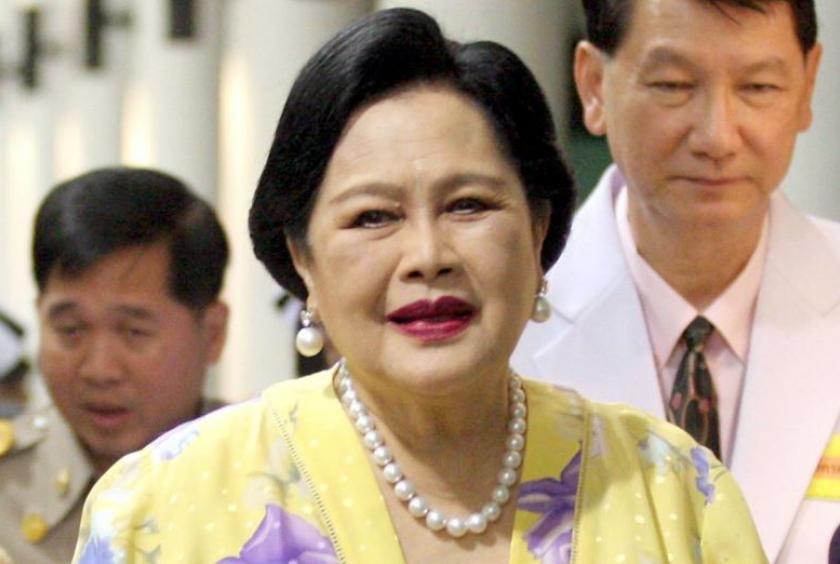
Thailand’s former Queen Sirikit, revered as the nation’s “Mother of the Nation” and wife of the late King Bhumibol Adulyadej, has died at the age of 93, the royal palace announced late Friday.
The palace said Sirikit passed away at Bangkok’s Chulalongkorn Hospital after years of ill health. She had been hospitalised since 2019 and had recently suffered a blood infection.
“Her Majesty’s condition worsened until Friday, and she passed away peacefully at 93,” the statement read.
Her son, King Maha Vajiralongkorn, Thailand’s current monarch, has ordered a year-long period of royal mourning, with members of the royal family to lead the nation in paying tribute.
By early Saturday morning, television anchors dressed in black as the country entered mourning. Prime Minister Anutin Charnvirakul called her death “a great loss to the nation,” saying he would postpone his trip to a Southeast Asian leaders’ summit in Malaysia to pay his respects.
A Beloved Matriarch and Style Icon
Throughout her 66-year marriage to King Bhumibol — Thailand’s longest-reigning monarch — Queen Sirikit was celebrated both as a symbol of grace and compassion and as a global fashion icon.
In the 1960s, she graced international magazine covers and was often compared to U.S. First Lady Jackie Kennedy for her elegance and diplomacy. Yet, at home, she was known for her warmth and commitment to rural development, travelling widely across Thailand alongside her husband to meet farmers and villagers.
“She cared about Thai people the way parents love their children,” said Tanyaporn Arammetha, a Bangkok shop owner. “She was like a mother to all of us.”
Her birthday, August 12, was officially designated Mother’s Day in Thailand — a tradition that continues today.
A Nation in Mourning
Outside homes and temples, gold-framed portraits of the queen adorn walls and shrines. Many Thais regard the royal family as semi-divine figures, bound to the country’s spiritual and cultural identity.
“I knew this day would come, but I didn’t expect it to be today,” said Sasis Putthasit, a 53-year-old housekeeper in Bangkok. “She was a mother figure to the country, and now she’s gone.”
Former diplomat and monarchy scholar Pavin Chachavalpongpun told AFP the queen’s death “marks a profoundly significant moment for the Thai royal family and the nation, given her immense popularity and deep connection to the late King Bhumibol.”
Legacy of a Royal Era
King Bhumibol’s reign, from 1946 to 2016, spanned decades of political upheaval — from post–World War II recovery to the dawn of the 21st century. Together, he and Queen Sirikit embodied stability and continuity, even as Thailand weathered coups, protests, and modernization.
Sirikit largely withdrew from public life in her later years, shielded by Thailand’s strict lese majeste laws, which prohibit criticism of the royal family.
In her youth, however, she mingled with world leaders and celebrities — from U.S. presidents to Elvis Presley — while also building a reputation for charitable and cultural work.
Her passing evokes memories of the national grief that followed King Bhumibol’s death in 2016, when Thailand observed a year-long mourning period, suspended public celebrations, and draped the nation in black.
Sirikit’s body will lie in state at the Grand Palace’s Dusit Thorne Hall in Bangkok, the palace said.
“Thailand has lost two guiding figures,” said Siraphob Sutthisalakorn, a factory worker in the capital. “The late king and queen are watching over us from heaven.”
Uncertain Future for the Royal Family
The Chakri dynasty, which has ruled since 1782, remains a powerful symbol of Thai identity, though its influence has faced unprecedented challenges in recent years.
Since ascending the throne, King Vajiralongkorn has not yet named an heir, leaving the line of succession uncertain. Of his seven children, four sons from an earlier marriage were officially disowned, while his 20-year-old son, Prince Dipangkorn Rasmijoti, is widely seen as the most likely successor.
While the monarchy still commands deep reverence, it has also faced rare public dissent. During 2020’s youth-led protests, tens of thousands called for political reform, including changes to the royal institution — an unprecedented challenge in modern Thai history.
Even amid these evolving times, many Thais say the late Queen Sirikit will be remembered as a bridge between tradition and modernity, and as the beloved matriarch of a nation in mourning.



